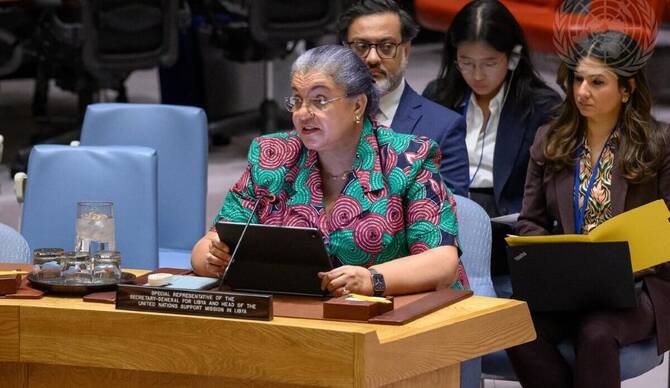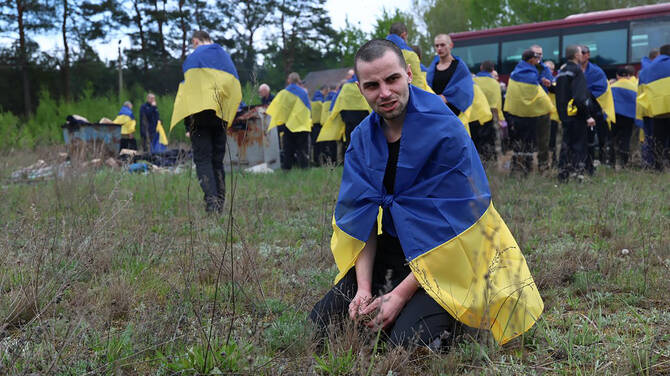NEW YORK CITY: The UN’s top envoy for Libya, Hanna S. Tetteh, warned the Security Council on Thursday that continued political gridlock and institutional fragmentation risk plunging the country further into instability, unless urgent compromise can be achieved and a unified path to elections agreed.
Addressing council members in person for the first time since her appointment in February as the secretary-general’s special representative for Libya, Tetteh noted that although the country’s leaders broadly agree on the need for elections, deep divisions remain over whether they should be preceded by the development of a constitutional framework or proceed under existing arrangements.
“Political will for compromise is crucial to develop a consensual road map resolving Libya’s political crisis and completing the transition,” she said.
“Elections must be integrated into a comprehensive political framework promoting state-building by unifying and strengthening institutions.”
Tetteh reported that the UN Support Mission in Libya has been facilitating consultations through an advisory committee tasked with addressing electoral challenges. The committee, which held sessions in Benghazi and Tripoli, is expected to submit its report by the end of this month.
“We will assess these options and use them as a foundation for forging consensus on the next steps of the Libyan-led and owned political process,” she added.
Although a fragile 2020 ceasefire agreement continued to hold for now, Tetteh warned that military tensions continue to run high, particularly in the south of the country where clashes in Qatroun have resulted in heavy casualties. She also noted that recent armed mobilizations among western factions in Tripoli have raised fears of renewed violence.
“The situation will remain fragile until there is political will to unify security and military forces under a shared vision,” Tetteh said.
She also highlighted worsening economic conditions marked by currency depreciation, inflation and disputes over oil revenues. A recent decision by Libya’s National Oil Corporation to halt oil-
for-fuel transactions was welcomed for promoting transparency, but disagreements continue, particularly following the Central Bank’s devaluation of the national currency, the dinar.
“Several stakeholders have suggested an audit of key Libyan state institutions by a top-five international firm,” Tetteh said. “This would help address lapses in financial management and promote accountability.”
On the humanitarian front, Tetteh decried the targeting of migrants and aid workers, and linked a surge in xenophobic rhetoric to increased violence, arrests and even deaths.
“The targeting of humanitarian organizations, migrants, asylum-seekers and refugees must stop,” she said.
She also expressed concern about arbitrary detentions, with legal professionals and political opponents among those targeted. She called for the immediate release of all individuals held without due process, and for the adoption of legislation to protect women from violence.
“Women in Libya face significant challenges and violence without adequate social or legal protection,” Tetteh said as she highlighted the need for swift passage of the long-delayed Protection of Women Against Violence Law.
The voter registration process recently concluded for municipal elections in 62 cities and towns, including Tripoli, Benghazi and Sabha. More than 570,000 people registered, 31 percent of them women.
Tetteh hailed this as a “crucial step for grassroots democratic governance” but noted several cases of interference and called for legal procedures to be respected.
She also pressed for resolution of political standoff within the High Council of State Presidency, warning that it undermines national governance.
“Every day, ordinary Libyans face recurring crises: economic, security and political,” Tetteh said. “The aspirations and needs of the Libyan people are held captive by protracted divisions and harmful unilateral actions.”
She concluded with a stark warning to the international community: “Inaction will be more detrimental than the cost of change.”
Tetteh urged the Security Council and the wider international community to unify behind a political plan to support democratic governance and sustainable development in Libya.



























